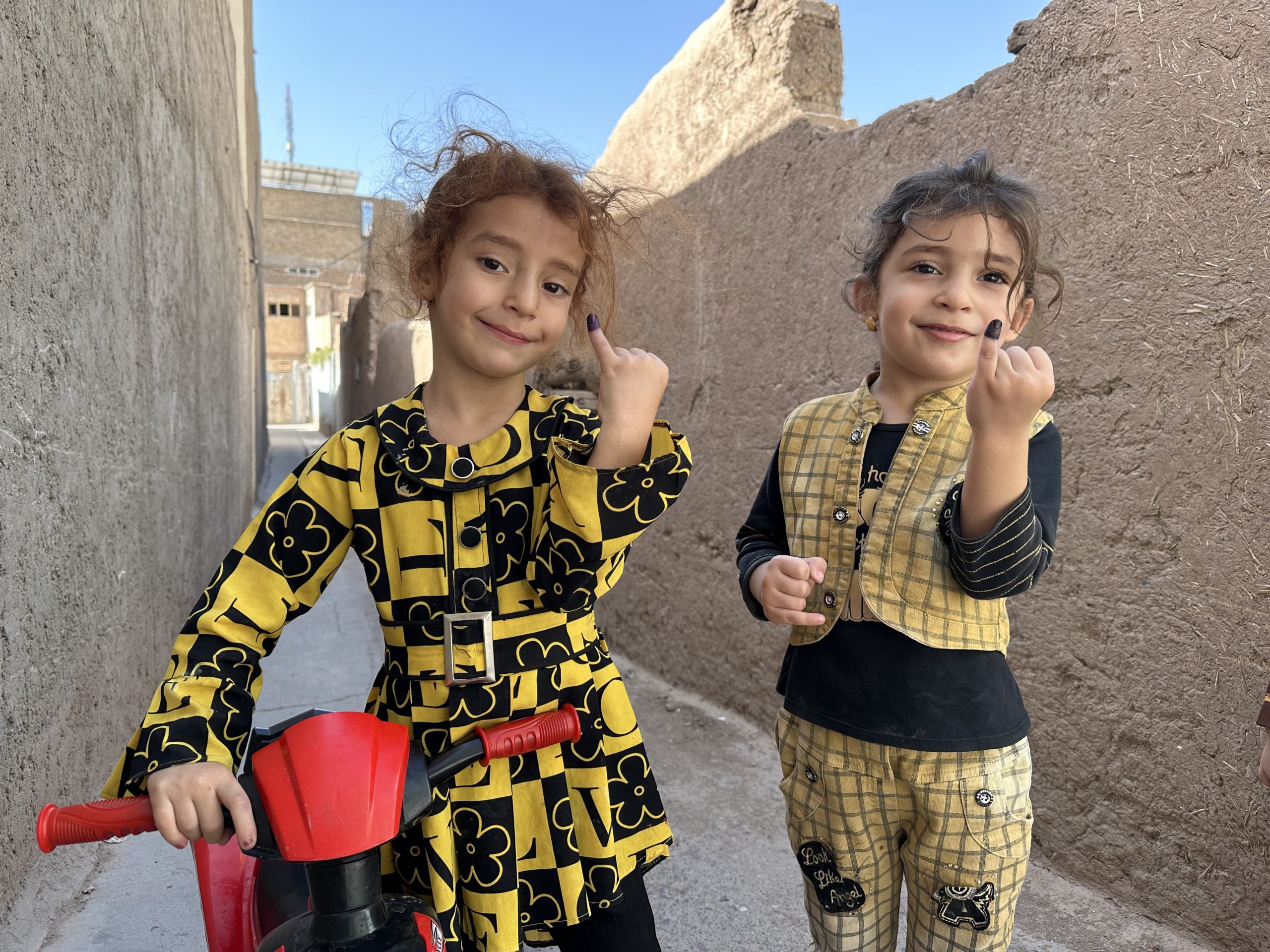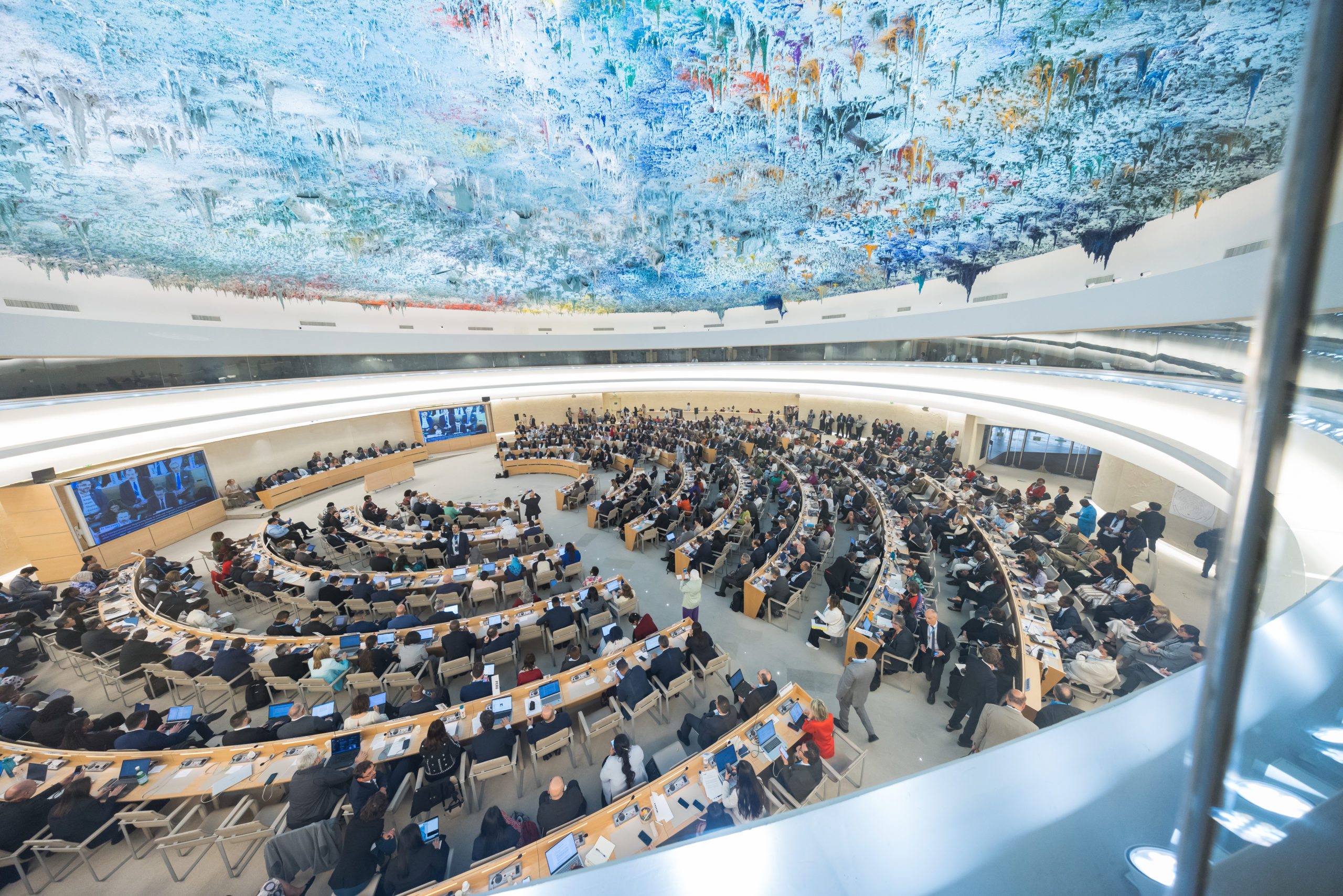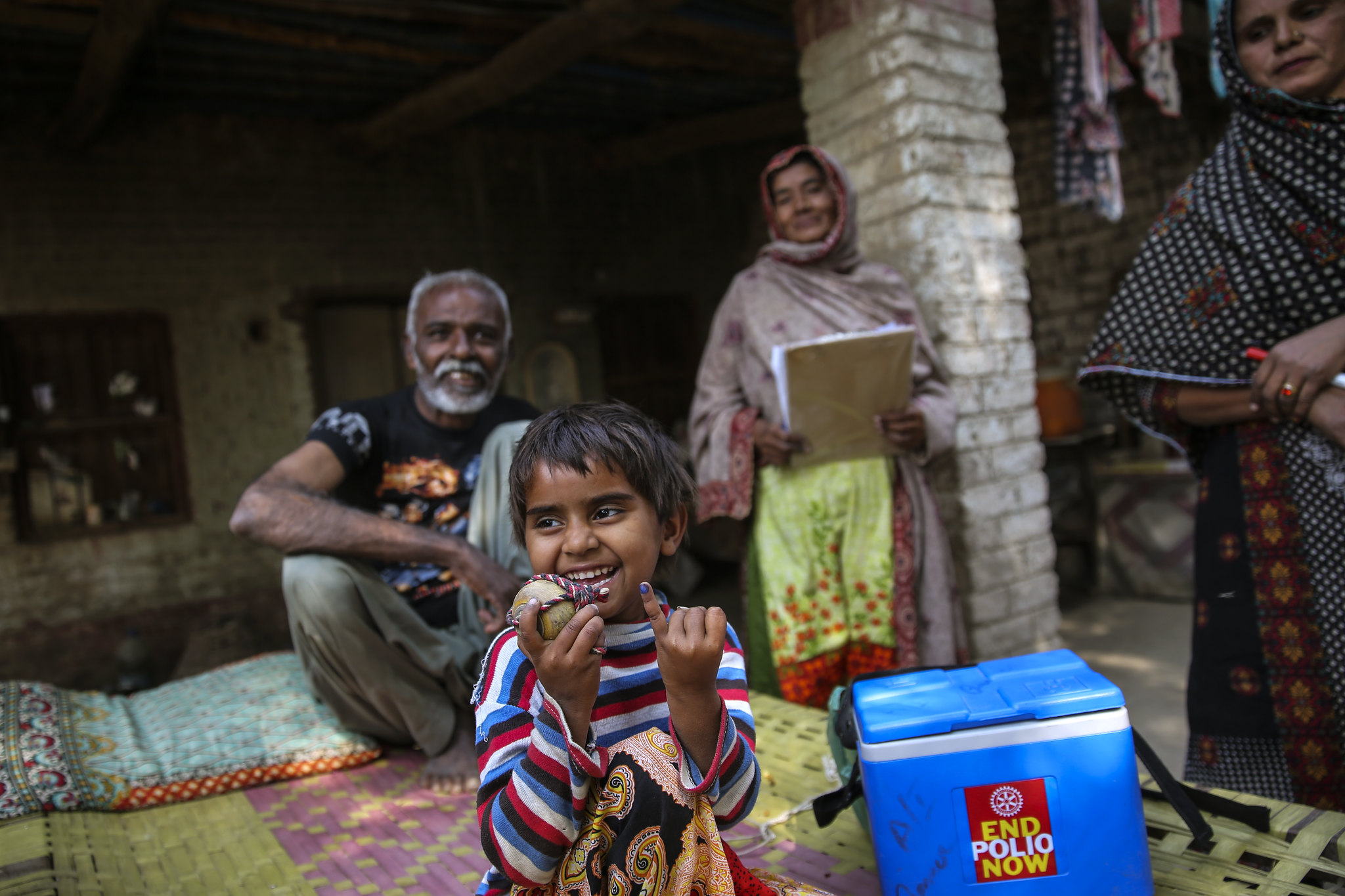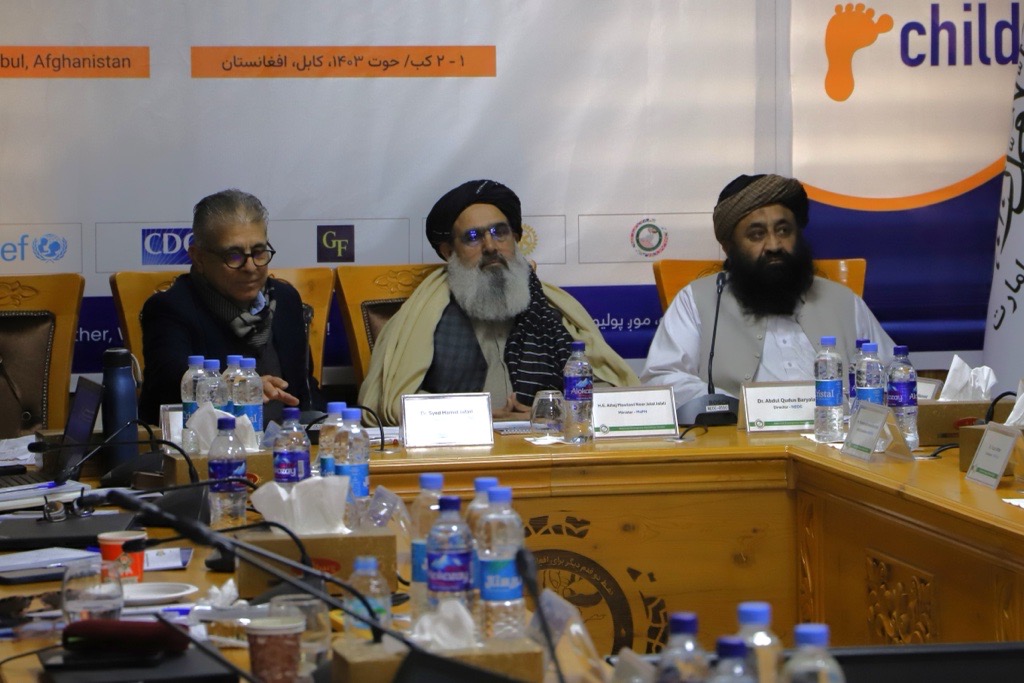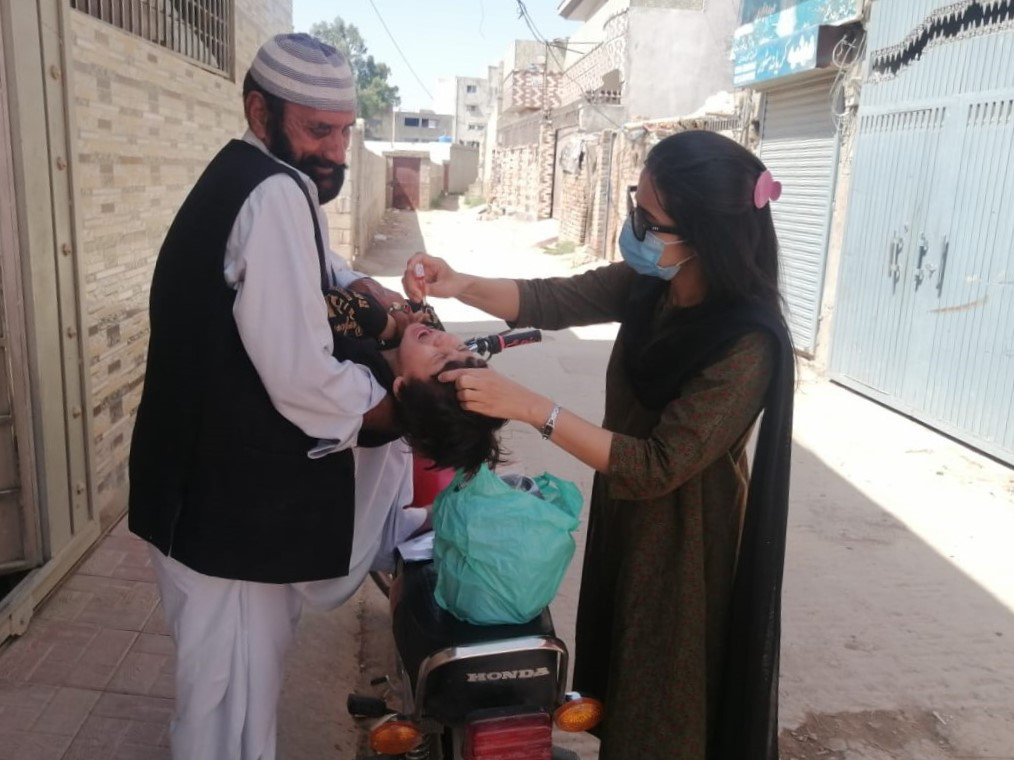
Dr Nida Ali joined the Polio Eradication Programme in her native Pakistan in 2017. A graduate of the medical faculty at Hamdard University in Karachi, she reflects on her time with the programme, the role of women and the eradication of polio in one of the last countries where it remains endemic.
I worked for the polio programme in Pakistan for four years and 10 months. It wasn’t easy – but then, what is? I look back at those long years and cry at the times when I laughed and laugh at the times when I cried. The programme gave me lot: exposure, experience, learning opportunities, knowledge, skills, and excellent colleagues from whom I learned a lot. But the ultimate gain was, of course, the children in my own country, including my son, who took polio drops in every polio immunization campaign.
I joined the programme in 2017, as Polio Emergency Response Officer in the provincial office in Punjab. I’m originally from Rawalpindi and before joining the programme, I worked on a government-led Reproductive Health programme which sparked my interest in public health.
I’d read about polio as part of my paediatrics study at medical school but I didn’t see a case of polio until I joined the programme. It was WPV (Wild Poliovirus Type 1) and it was in Punjab, a very small child who wasn’t even a year old. The second case I saw was a case I investigated when I was working as a Polio Eradication Officer in Islamabad. All the signs were there – the child lived in a very densely populated household where the hygiene conditions weren’t good, in a part of town where a lot of travellers were coming and going. He’d also been what we call a ‘refusal’, meaning that his caregivers had refused to allow him to be vaccinated. I examined the child and it was a classic case of Acute Flaccid Paralysis, or AFP, one of the signs that the virus may be circulating in the community. The ankle reflex was present but the knee reflex was lost. We sent samples to the laboratory and it was declared as a positive case of polio.
I held a number of roles during my time with the programme – Area Coordinator, Rapid Response Officer, Divisional Surveillance Officer – and I was fortunate enough to travel to other provinces. I went to northern KP (Khyber Pakhtunkhwa) to respond to a WPV outbreak, and to southern KP and Gilgit-Baltistan for post campaign monitoring. I learned some phrases of the local language in northern KP – how many children do you have in the house, the numbers from one to ten, how many children are vaccinated, can I see their finger mark – phrases that helped me make a connection with mothers and understand their responses. I also used to take out my phone and show them photos of my son – he was four years old at the time – and tell them that he takes the polio drops in every campaign. It was great to make such a human connection and I was able to convince many refusals that way.
Seeing the programme at field level gave me great insights but so did working at the National Emergency Operations Centre (EOC) in Islamabad. It’s where all the work and knowledge comes together, and where staff from all the different the provinces come so it was a great opportunity to meet them and exchange experiences.
Women make up around 40 percent of the polio programme but mainly as frontline workers who go from house to house to vaccinate millions of children across the country. There aren’t so many women at higher levels, often because women don’t apply for these positions, which is a shame. On many occasions I found myself to be the only woman in a large meeting room, particularly the meetings where policies and protocols are discussed. I think the presence of more women in leadership roles will bring an interesting perspective to the programme, particularly given our roles as mothers and caregivers.
Today I’m in Atlanta, studying Global Health at Emory University. It was my experience with the polio programme that helped me get through all the stages of obtaining scholarship and a placement in such a reputed University. This is an interesting opportunity of learning from the experts, which again, is not new to me as this is exactly what I’ve been doing at the polio programme in Pakistan. I’m not sure where this will lead me – back to polio or to another part of public health, I don’t yet know. All I know is that I will go where my expertise leads me.
I hope one day I can tell my son the story of how polio was eradicated and how no child will ever be paralyzed by this virus again. I hope by that time, we direct our resources for protecting children from other diseases or, even better, to curb the infections that have potential to lock the whole world down.
